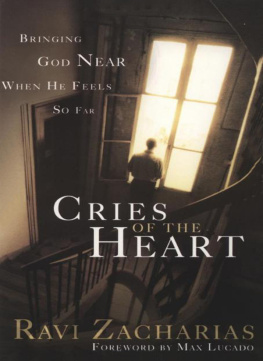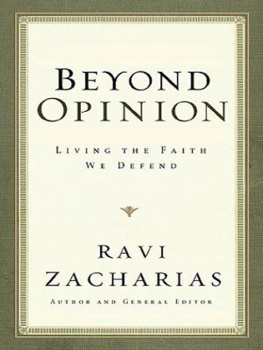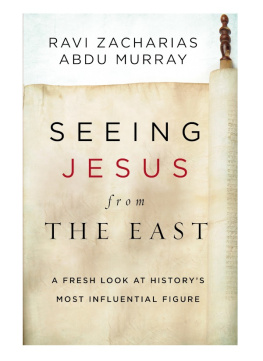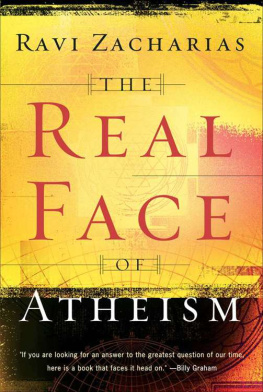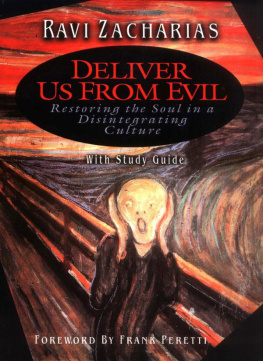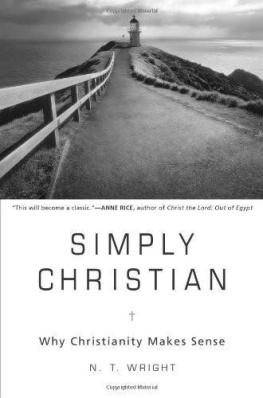Ravi Zacharias - Has Christianity Failed You?
Here you can read online Ravi Zacharias - Has Christianity Failed You? full text of the book (entire story) in english for free. Download pdf and epub, get meaning, cover and reviews about this ebook. year: 2010, publisher: Zondervan, genre: Religion. Description of the work, (preface) as well as reviews are available. Best literature library LitArk.com created for fans of good reading and offers a wide selection of genres:
Romance novel
Science fiction
Adventure
Detective
Science
History
Home and family
Prose
Art
Politics
Computer
Non-fiction
Religion
Business
Children
Humor
Choose a favorite category and find really read worthwhile books. Enjoy immersion in the world of imagination, feel the emotions of the characters or learn something new for yourself, make an fascinating discovery.

- Book:Has Christianity Failed You?
- Author:
- Publisher:Zondervan
- Genre:
- Year:2010
- Rating:4 / 5
- Favourites:Add to favourites
- Your mark:
- 80
- 1
- 2
- 3
- 4
- 5
Has Christianity Failed You?: summary, description and annotation
We offer to read an annotation, description, summary or preface (depends on what the author of the book "Has Christianity Failed You?" wrote himself). If you haven't found the necessary information about the book — write in the comments, we will try to find it.
Has Christianity Failed You? — read online for free the complete book (whole text) full work
Below is the text of the book, divided by pages. System saving the place of the last page read, allows you to conveniently read the book "Has Christianity Failed You?" online for free, without having to search again every time where you left off. Put a bookmark, and you can go to the page where you finished reading at any time.
Font size:
Interval:
Bookmark:

To my dear friend, Mark Pu, whose candor and concern for an authentic Christianity have made a profound impact on my life.
Thank you, friend.
Some time ago, our ministry held an open forum at the beautiful Fox Theater in Atlanta, Georgia. Some of my younger colleagues asked me to consider addressing the topic Has Christianity Failed You? My first reaction was surprise that they thought such a topic would be of interest to a diverse audience. They were even more surprised by my surprise. The disappointment in Christianity they had heard expressed by so many of their friends was supported by the questions raised in scores of letters received at our ministry. (It is said that for every person that writes a letter, there are probably a thousand who feel the same way.) Many of their contemporaries, having found new hope and meaning in Christ, had begun to experience tension between what they believed and what they were seeing around them or experiencing themselves. Uncertainties about their faith had grown and weariness had begun to creep in. What had been a vibrant and dynamic faith had become defined by nothing more than a circle of friends and range of activities. They concluded that, especially for the younger generation, this was not a topic we should keep from addressing.
So I agreed, even though I was still not sure to what degree people would be drawn out into the open. During the weeks before the forum, our videographer took his camera to record the responses of several people who had renounced the Christian faith they had once held. One was a man who had been rejected by Christians because of his gay lifestyle. Another had fallen into adultery, and though she had repented, she had never felt accepted by Christians at church again. Some said they had been disappointed in Christianity because they found it intellectually untenable in an age of reason.
To my total surprise, on the day of the event we had a capacity crowd of four thousand peoplewith more people lined up outside, willing to pay a higher price for a ticket to get in. I had seen scalpers at ball games but never at a Christian talking head event. Some of those who had been interviewed made a point of attending the event so they could see if there was an acceptable answer to their disappointment. If this crowd was any indication, the sense that Christianity has failed is real and troubling and pervasive.
Why are so many today not only living with silent doubt but actually leaving the evangelical fold for something else? Is there something wrong with the message, with the communicator, with the heareror with all three? Is it time to ask ourselves some hard questions about what it means to be a follower of Jesus Christ? Why does it seem that God has made it so hard to continue believing, regardless of ones education, personal experience, or standing in society? Such skepticism is not representative of just those who are hostile to the faith; it also represents many who are honestly asking questions. This book is an attempt to respond to both of these groups, within and outside the Christian faith. More to the point, I believe, is whether it is actually possible to still make sense out of life once one has denied ones faith in Christ or has shunted him aside.
In the end, the answers that are given and received must be both felt and real, with the added impetus that God is nearer than one might think. He desires that we sense him very near to us and not distant from us. But the assurance of his nearness comes at a cost, just as is true for any relationship of love and commitment. Of the thirty-seven years that my wife and I have been married, the three most difficult years in our marriage were those during which I set aside my calling as an itinerant evangelist and, at the request of my denominational leadership, took up a seminary professorship as my principal contribution to the work of the church. Going against my inner calling was difficult, and in the end I realized that when one is outside the will of God, ones other commitments can also be put at risk and ones most important relationships can become dry and lifeless. To be in the place where God wants you is indispensable to enjoying the blessings God offers.
The question raised in this bookHas Christianity failed you?is an even deeper challenge than it may appear. It is not merely that Christianity may not be what some thought it would be (that sounds more like a question of felt need); the real question is one of intellectual coherence, and that is much deeper. Former evangelical Robert M. Price takes to task Rick War-rens bestselling book, The Purpose Driven Life, and responds with one of his own, The Reason-Driven Life. Price puts the sword to evangelical faith and twists it with delight. In powerful words and with boastful scholarship, he declares that evangelicals have been intellectually hoodwinked or are existentially hypocritical. Every chapter is laced with mockery of what he claims to have once believed as an evangelical and reveals his anger for having been taken in. I would venture to suggest that large numbers of people would concur with him as many of our young people in particular are finding themselves trying to survive the terrifying high seas of their faith journey without chart or compass.
When Noah was building his ark, God gave him detailed instructions for everything: how high, no higher; how long, no longer; what species to include and in what numbersdetails ad nauseum. But when all had been done according to Gods instructions and the door was finally shut, it must have been a terrifying experience to realize there was no sail or rudder on this ark. Who was in control?
Is Christianity a mindless game in which we are hurled into the storms of life with false assurances, or are the instructions we have been given so detailed that we can anticipate what the storms of belief will be like, know who is in control, and what to do when we reach solid ground? In the end, rather than it being Christianity that has failed, could it be that we will be startled to find out it is the church that has failed, not Christ?
This book is for Christians and skeptics alike. I pray it will make a difference in how each person who reads it sees Jesus, how they see themselves, and how they see the way life is to be lived and thought through. God does not disappoint us. We often disappoint him and ourselves. There is a road to recovery; there is direction to the center of his place for us. I hope the following pages will point to the rudder and the sail we have been given and, most important, to the Captain of this ship called Life.
Who is Jesus?
Three little boys were arguing about whose father got home faster from work each day. The first boy boasted that his father was a former Olympian middle distance runner and ran in record times. He left work at 4:00 p.m. every afternoon, and although his home was three miles away, he would grab his briefcase and run all the way, reaching home by 4:15. The second boy was not to be outdone. His father, he said, had competed in professional auto racing, and once he put his foot to the pedal, nothing could get in his way. He also worked three miles away and also left work at 4:00 but reached home by 4:05. The third one was just chuckling at all these boastful claims. He knew he had them both beaten. His father, he said, actually worked five miles away from home. He left work at 4:00 every afternoon and got home half an hour before he left work, at 3:30. He worked for the government.
Font size:
Interval:
Bookmark:
Similar books «Has Christianity Failed You?»
Look at similar books to Has Christianity Failed You?. We have selected literature similar in name and meaning in the hope of providing readers with more options to find new, interesting, not yet read works.
Discussion, reviews of the book Has Christianity Failed You? and just readers' own opinions. Leave your comments, write what you think about the work, its meaning or the main characters. Specify what exactly you liked and what you didn't like, and why you think so.

